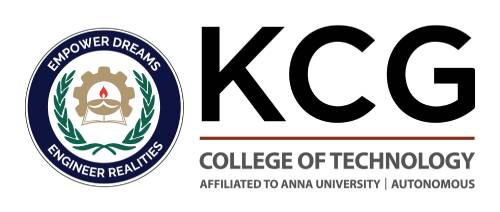Building Tomorrow: Exploring Emerging Trends in Civil Engineering for Smart Cities and Infrastructure Development
In the dynamic landscape of civil engineering, the concept of smart cities and infrastructure development is ushering in a new era of innovation and sustainability. At KCG College of Technology, we are dedicated to staying at the forefront of these emerging trends, shaping the future of infrastructure with cutting-edge research and education. Let’s delve into the exciting developments that are reshaping the field of civil engineering and paving the way for smarter, more resilient cities.
1. Integration of IoT and Sensors:
One of the key trends driving the evolution of civil engineering is the integration of Internet of Things (IoT) devices and sensors into infrastructure systems. These smart technologies enable real-time monitoring of various parameters such as traffic flow, structural health, and environmental conditions. By harnessing data analytics and machine learning algorithms, civil engineers can optimize the performance of infrastructure assets, improve maintenance practices, and enhance overall resilience.
2. Sustainable Urban Planning and Design:
With the global focus shifting towards sustainability, civil engineers are playing a crucial role in designing and implementing eco-friendly solutions for urban development. From green building practices to the integration of renewable energy sources and efficient transportation systems, sustainable urban planning is becoming a cornerstone of modern civil engineering. By prioritizing environmental stewardship and resource efficiency, engineers are creating cities that are not only livable but also resilient to future challenges such as climate change.
3. Advanced Construction Materials and Techniques:
The advent of advanced materials and construction techniques is revolutionizing the way infrastructure projects are executed. Innovations such as self-healing concrete, 3D printing, and modular construction are streamlining the construction process, reducing costs, and minimizing environmental impact. These technologies also enable faster project delivery and greater flexibility in design, empowering civil engineers to tackle complex challenges with confidence and creativity.
4. Resilient Infrastructure for Disaster Mitigation:
In an era marked by increasing frequency and severity of natural disasters, civil engineers are embracing the concept of resilience in infrastructure design. By incorporating robust design principles and risk assessment methodologies, engineers can mitigate the impact of hazards such as earthquakes, floods, and hurricanes. From resilient building materials to smart infrastructure systems that can withstand extreme conditions, the focus is on ensuring the safety and well-being of urban populations in the face of adversity.
5. Embracing Digital Twins and BIM:
Digital twins and Building Information Modeling (BIM) are revolutionizing the way infrastructure projects are planned, designed, and managed. These digital replicas enable engineers to visualize, simulate, and optimize every aspect of a project’s lifecycle, from initial concept to operation and maintenance. By fostering collaboration and data-driven decision-making, digital twins and BIM empower civil engineers to deliver projects more efficiently, cost-effectively, and sustainably.
The field of civil engineering is undergoing a profound transformation, driven by technological advancements, sustainability imperatives, and the evolving needs of urban populations. At KCG College of Technology, we’re committed to equipping the next generation of civil engineers with the knowledge, skills, and mindset to embrace these emerging trends and shape the future of infrastructure development. Together, we’re building smarter, more resilient cities that enhance quality of life and promote sustainable growth for generations to come. Join us on this exciting journey towards a brighter, more connected future.








